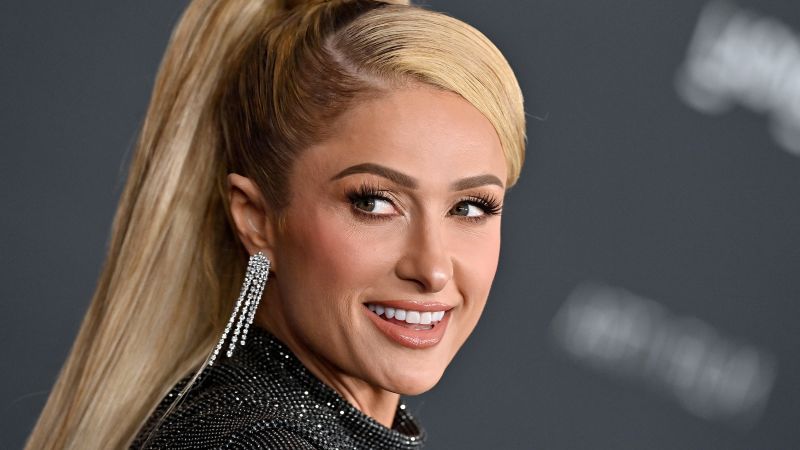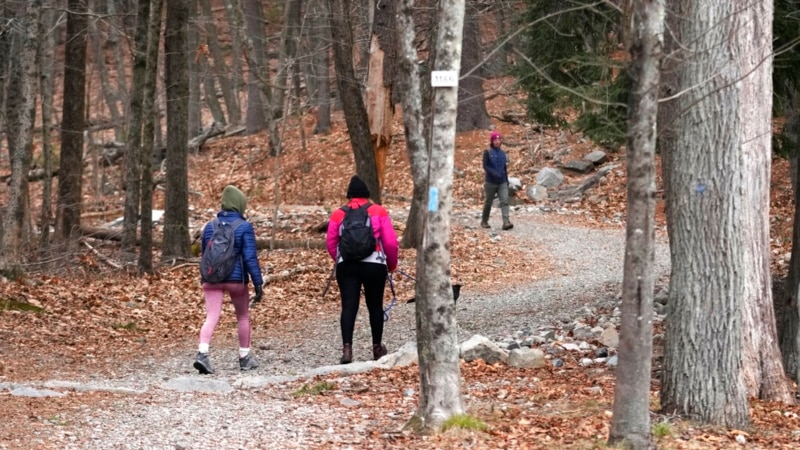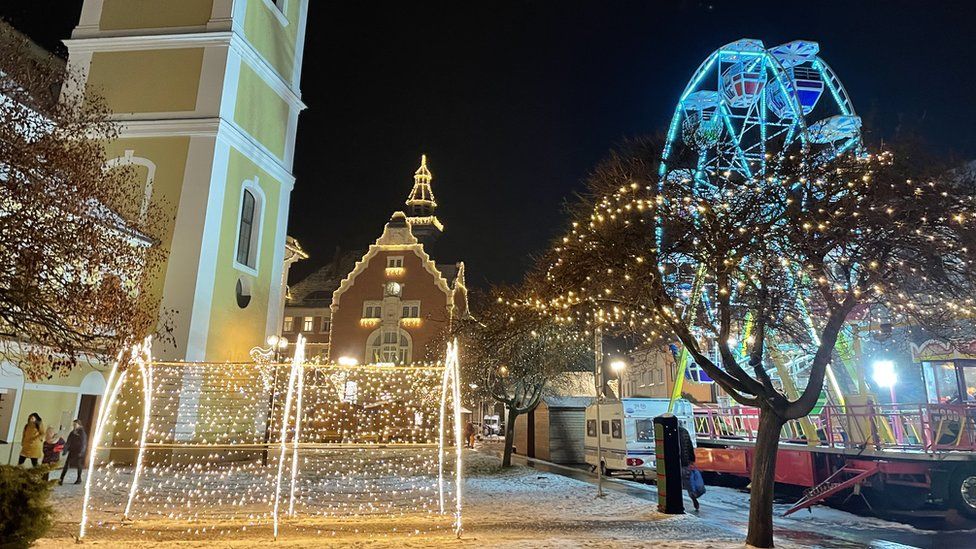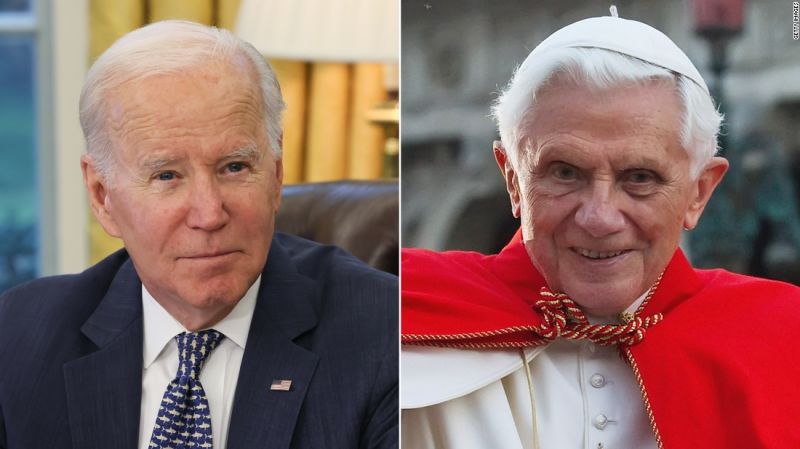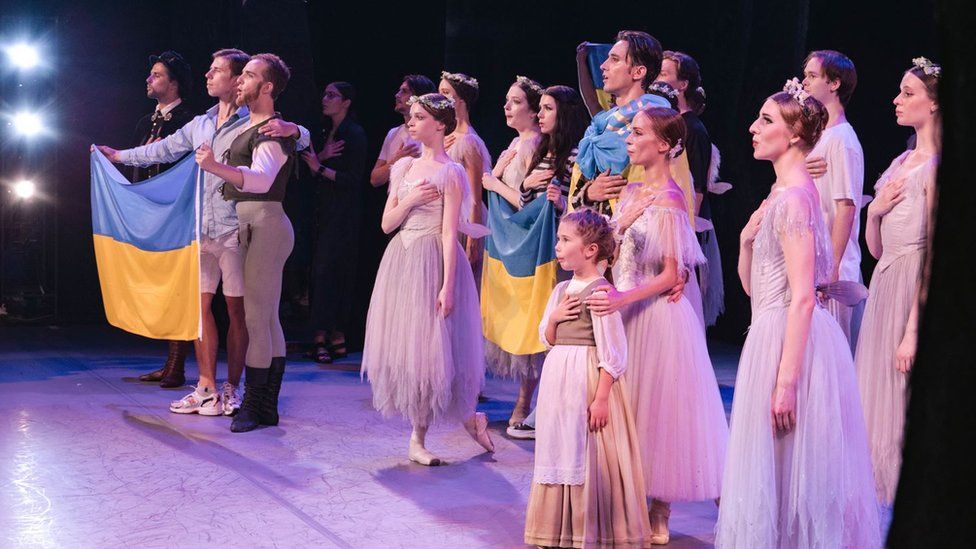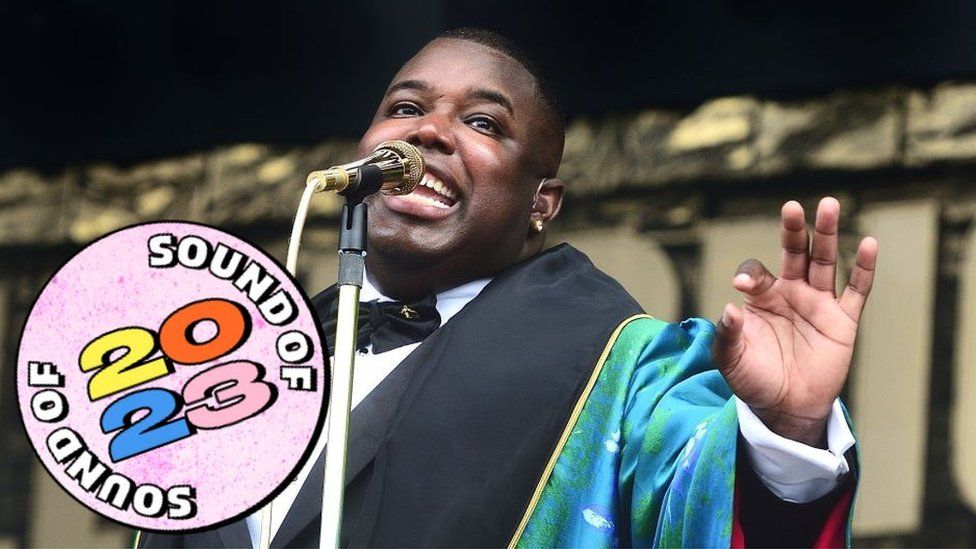Editor’s Note: Sign up to get this weekly column as a newsletter. We’re looking back at the strongest, smartest opinion takes of the week from CNN and other outlets.
CNN
—
William Carlos Williams is perhaps best known for the red wheelbarrow on which so much depends, but “Spring and All” – the 1923 book which includes that poem – is a manifesto on how language, through its own slow renewal, can recreate the world. “It is the imagination on which reality rides,” Williams wrote. “To whom then am I addressed? To the imagination.”
In 2012, the Library of Congress cited “Spring and All” as one of 88 “books that shaped America,” which feels, as we prepare to take on 2023, like a prescient gesture, one that anticipated the power of imagination to create change and the role of culture in efforts to attend to the present while staying connected to the past and committed to transforming the future.
Sometimes the past speaks directly from the page. As Laura Beers wrote, George Orwell’s perspective following the Second World War forecast the realities of 2022: disinformation, “reality control,” and freedom of expression as the bedrock of all other freedoms – making it the most important, and also the most vulnerable to attack and suppression. For Issac Bailey, a free copy of Mark Twain’s “A Connecticut Yankee in King Arthur’s Court” opened his imagination in ways a childhood stutter had kept locked inside – and prompted him to speak out against ongoing efforts to ban books.

Or it’s a single word. Take Merriam-Webster’s word of the year: gaslighting. Its selection was a statement on the precarity of truth in our lives, but Nicole Hemmer, who wrote one of the first pieces connecting the term to then-candidate Donald Trump in 2016, objected to synonymizing “gaslighting” with lying without emphasizing its origins as a form of psychological abuse against women. “This loss of context for a single word might not feel urgently important – after all, words evolve as they work their way from novel to commonplace to, eventually, trite (as the word ‘gaslighting’ now feels after years of overuse). But in a culture where histories of abuse are regularly erased – even five years into the #MeToo movement – the erasure feels significant,” insisted Hemmer. Changing one word’s meaning can empower women to claim their experiences and take one more step toward justice and equality.
Consider also how cultural figures have loomed large this year in our most painful moments. As Peniel E. Joseph reminded us, cultural icons including basketball coach Steve Kerr and actor Matthew McConaughey spoke out after the massacre of 19 schoolchildren in Uvalde, Texas, serving in Joseph’s words “as courageous models for a progressive White male identity that challenges systems of oppression, speaks truth to power and confronts the divisions of our current moment by publicly highlighting the gap between the nation’s professed values and a more bitter reality that allows 19 children to be killed in such grotesque fashion.”
And during the Jackson water crisis, W. Ralph Eubanks recounted how the richness of Mississippi’s literary and cultural heritage informed his conviction that “Mississippi has something to say … Mississippi matters.” And yet, while in Jackson to celebrate that heritage, he instead encountered “a new way the past and the present are colliding in Mississippi. Instead of the cultural charm and pull of this place that I love so much, I was confronted by the remnants of Jim Crow Mississippi living on in the present.”
But if I might borrow and riff on Williams’ formulation to look back at 2022 in cultural commentary, another part of the reason reality rides the back of imagination is because the latter functions as a source of joy and revelation that can invigorate the former. After the last few years, don’t we deserve a little more of that?

In March, absurdist dramedy “Everything Everywhere All At Once” – led by Michelle Yeoh playing Evelyn Wang – took the screen by storm, offering what Jeff Yang described as a “perfect metaphor for this thing we call Asian America.” In the film, Yeoh’s character “can conjure up any reality she imagines, bringing substance to the outrageous worlds of her imagination by drawing power from the infinite diversity of her myriad selves – making many into one, sometimes by chance, sometimes by choice. And we, as Asian Americans, are in the process of doing the same, building a cultural collage out of mixed media and lived experiences,” wrote Yang.
Summer romance took an unconventionally sexy (and equally dramedic) turn with Emma Thompson’s “Good Luck to You, Leo Grande,” which chronicled her recently-widowed protagonist’s quest for sexual pleasure and her first orgasm – with a sex worker. This is a new kind of romance, affirmed Sara Stewart – a romance between Thompson’s Nancy and her own post-60 body: “Talk about a message at odds with our current political moment, where women’s bodily and autonomy and power are under siege.”
Come fall, noted Stewart, it was time to be served some “eat the rich” satire in “The Menu” and “Triangle of Sadness.” Predictable, perhaps, given a pandemic “in which billionaires got richer while millions died,” she wrote. But while investing any film with “single-handedly dismantling capitalism seems too heavy a lift … Mark Twain said, ‘the human race has only one really effective weapon and that is laughter.’ We can at least capitalize, so to speak, on these films’ painting their ultra-rich subjects as inherently ridiculous. We can begin to puncture the idea that obscene wealth is the ultimate American aspiration,” argued Stewart.
More on films that made a difference in 2022:
Lilit Marcus: ‘CODA’ didn’t change my life. It showed my life
Vanessa Hua: Why ‘Turning Red’ gives me hope
Nsenga K. Burton: What the calls to boycott ‘The Woman King’ are really saying
Jemar Tisby: This film is a timely reminder of what patriotism looks like

Emmy glory and the second season premiere of “Abbott Elementary,” the beloved comedy set in a Philadelphia school, was a triumph for an underdog that “has earned its stature – and then some,” wrote Gene Seymour, who has lived in the City of Brotherly Love off and on for 40 years. It’s more than a show about teaching, he insisted – it’s a show that, like its city of origin, “teaches you. And one of its lessons is not to understand anyone or anything too quickly, but to give each person time and space to figure themselves – and each other – out.”
2022 was also the sophomore year for Netflix’s Regency-era hit “Bridgerton,” and Holly Thomas outlined how the show’s second season made her fall in love with Anthony Bridgerton like the rest of us, while stressing the importance of remembering “just how rooted in fantasy ‘Bridgerton’ is. It suggests that a strikingly bigoted country – one which failed miserably to accept a non-White royal in the 21st century, let alone the 19th – has managed to dismantle structural racism in a generation, all because the king made a Black woman his queen. … All this to say, literally nothing is beyond the redemptive power of love on this show.”
That’s a far cry from “The Crown” – now a fifth-year senior with a new cast – where love is nowhere to be found and, as Thomas noted, fiction is rightly putting history in the corner. (In other streaming period drama-drama of the Regency variety, Thomas also praised the Jane Austen “adaptation” of “Persuasion” for being a so-bad-it’s-brilliant work of sneaky genius.)
More smart takes on television:
Sara Stewart: ‘Dahmer’ debate is finally saying the quiet part about true crime out loud
Bill Carter: Trevor Noah’s bombshell was almost predictable
Olachi Ihekwaba: I turn to romance series when nothing else makes sense
Lindsey Mantoan: ‘House of the Dragon’ isn’t perfect, but it may be what we need
Even before the Supreme Court released its decision in the Dobbs v. Jackson Women’s Health Organization case in June, women across America began speaking out about what the end of Roe v. Wade meant to them. Laura Beers shared that her own parenting journey could be rendered illegal or practically prohibited in states with abortion bans. Her younger son was conceived via IVF after she endured a miscarriage requiring a dilation and curettage procedure in one pregnancy and chose to abort another after a fatal anomaly was discovered. “Each step in my journey to motherhood – the D&C following my miscarriage, my abortion, and my IVF treatment – relied on the good faith support and care of doctors committed to helping me achieve the healthy pregnancy that I so desired,” Beers wrote. “Recent anti-abortion legislation imperils the ability of doctors to provide similar care to their patients.”
Franchetta Groves, a student at Catholic University, wrote in June that the Dobbs decision didn’t feel like a setback, but rather a triumph for those like herself who identify as pro-life. “After Roe, I believe it will be possible for our nation to be one that doesn’t cast judgment on women who become pregnant, but one that embraces them with love and compassion,” she reflected.
Dr. Mae-Lan Winchester, an Ohio maternal-fetal medicine specialist who works with high-risk pregnancies and whose patients have had to go out of state for abortion care, wrote in October that “it felt like a slap in the face to be told by lawyers … that my medical opinion is not enough for the law to permit me to provide the care I am trained to give. … I worry that the next lawyer I discuss a complex case with will not understand, and that the patient who needs an abortion will be denied. I worry they will lack the time, money, transportation and support to get the care they need. … I am scared they will die.”
Anxieties over the realities of a post-Roe America touched families who fear the rollback of rights around contraception and same-sex marriage. As Joan Lester wrote: “Twice, I’ve survived the legal marital shadows,” in her first interracial marriage to a Black man and in her later same-sex union to a woman. “I wonder and worry: are they coming for my marriage next?” They touched our daily lives as directly as the phones in our pockets do (as Katherine Yao and Megan L. Ranney noted in citing the vulnerability of data gathered by period-tracker apps) – or as routinely as our kids’ activities (as Ranney also wrote after a Florida school’s request for athletes’ period data raised legal and security issues).
For more:
CNN contributors: The conflicts in a post-Roe America are just beginning
Erika Bachiochi, Reva Siegel, Daniel Williams and Mary Ziegler: We disagree about abortion but with one voice support this urgently-needed law

When Twitter accepted Elon Musk’s offer to buy the company in April, Kara Alaimo warned it could be a death knell for the social media platform: “Musk has been vocal that he thinks Twitter should be a platform for mostly unfettered speech,” she wrote, but “allowing harmful forms of ‘free speech’ – like misogyny and hate – on Twitter will actually have the effect of silencing many people and will be disastrous for the social network.”
Once Musk took the reins at Twitter in the fall, he gutted the company and reinstated users who had engaged in hateful or mendacious speech on the platform in the past. Hate and harassment, already a problem, skyrocketed. Roxanne Jones deleted her account on the same day Musk took over, after years of battling haters online as a Black woman in the public eye. She wrote: “Waking up to toxic attacks on Twitter kept me in beast mode, on and off the site. That’s what the Twitter-verse will do to you. … Twitter will have you fighting anonymous bots meant to misinform the masses and real people who don’t have the courage or the intellect to challenge you in person. So nah, I’m done. I’ll take my power and my voice and walk in the real world.”
More on Twitter:
David M. Perry: Why those of us on Twitter are saying “I was here”
Dean Obeidallah: Elon Musk’s Twitter is helping to normalize a neo-Nazi

The death of Queen Elizabeth II in September was more than a turning point in 2022; it was a seismic shift for a country whose global imperial imprint has diminished but for many will never fade. The wave of public grief was immediate, and the opposition to and conflictedness around that grief equally passionate. And in marking the seven decades of her reign in its unmatched longevity, from her 1953 coronation (the first televised) to her death at 96, “Britain closes a chapter on its past, a farewell to members of the wartime generation that saw this country’s finest hour, encapsulating as they did the spirit of 1940, when Britain stood alone against fascism, undaunted and unbowed,” wrote Rosa Prince.
In her nearly 71 years on the throne, Queen Elizabeth stood alongside countless world leaders, most of them men, including 12 American presidents (she met a 13th, Harry S. Truman, while still a princess). “Queen Elizabeth’s sovereignty was framed by her gender even before she came to the throne,” observed Sarah Gristwood. “For 70 years, the British people have grown used to singing ‘God Save the Queen.’ To sing ‘God Save the King’” – as the British people will conceivably do for at least three generations, with Charles, William and George – “will catch in the throat for some time to come.”
For more on the royal family:
Holly Thomas: King Charles’ biggest problem isn’t his crown, but his voice
Peggy Drexler: Why ‘Harry & Meghan’ is a royal disappointment

In November, Michelle Obama published another best-selling book, and what made “The Light We Carry” fascinating, assessed Nicole Hemmer, was that it was not a follow-up to her memoir “Becoming.” Hemmer classified it as a self-help book, except instead of a life coach, readers get a former first lady. Unlike Eleanor Roosevelt, who wrote an advice column for two decades, or more recent first ladies’ children’s books or policy statements, Hemmer wrote that Obama picks up where Betty Ford left off, sharing her own authenticity in service of a social purpose and building a brand beyond the limitations of her political role: “She has an intuitive sense of how blurred the lines have become between not only the personal and the political, but between influencer and politician. In this book, Obama shows her desire to use that tangle of emotion and power to bring people together, but the ease with which feelings and politics now blend is also a reminder of how easily that combination could also be used to divide.”
Don’t miss:
Jill Biden: What Ukrainian mothers taught me about this war
Adrienne Childs: Why the Obamas’ portraits matter
The dismissal of a renowned adjunct chemistry professor from New York University in October after a spate of student complaints about his teaching reinvigorated a series of long-standing questions about the modern academy, wrote Jill Filipovic. “Are academic standards dropping? Are professors and administrators too beholden to students’ fragile emotions – and their parents’ tuition dollars? And what’s wrong with kids these days, anyway?” Filipovic argued that the university got it wrong: “Whether or not [Dr. Maitland] Jones was an effective teacher for aspiring medical students is up for debate, but in firing him, NYU is effectively dodging questions about the line between academic rigor and student well-being with potentially life-and-death matters at stake.”
When it comes to mental health on campus, the stakes couldn’t be higher, noted David M. Perry, who classified recent lawsuits against Yale and Stanford Universities as a necessary spotlight on the need to do better at caring for students with mental health disabilities. “The good news is that there are solutions,” he wrote. “Which is good, because the bad news is that as Generation Covid arrives on campus, students whose entire high school experience has been shaped by living through an ongoing global mass death event, the quotidian pressures of college life are only going to get worse.”
More sharp campus takes:
Issac Bailey: I was the kid who stayed silent in college
Evan Mandery and Michael Dannenberg: It’s time to put an end to early decision
David M. Perry: Tips for picking a college major

In a year of sports largely bookended by a second Beijing Olympics and the first FIFA World Cup held in the Middle East, it was clear that in between, some of the biggest milestones were in arenas beyond the playing field.
In August, Serena Williams rewrote what retirement means in an essay in Vogue. “By using the word ‘evolve,’” applauded Roxanne Jones, “Serena has done what society has failed to do when it comes to framing talented women who excel early in a chosen career, then leave on their own terms and lean into themselves. Watching women realize their limitless capacity for greatness is a beautiful thing. … Many women of all economic backgrounds, including those in my own peer group, are reimagining and expanding what success looks like in our lives. It isn’t an easy choice to make.”
The magic spun by the bat of Aaron Judge in late summer and early autumn kept many in thrall, but Jeff Pearlman had harsh words for Major League Baseball’s myth-making attempts to capitalize on the spark, finding them hypocritical after years of sweeping rampant doping under a rug of greed. Aaron Judge “has had a season for the ages,” wrote Pearlman. “This should be an historic time for baseball. This should be an historic time for Aaron Judge. Instead, greed destroyed baseball – and took its history with it.”
At a Qatar World Cup staggeringly diminished by human rights protests and the untimely death of legendary US soccer journalist Grant Wahl, the Moroccan national team brought light by praying and joyously kissing the covered heads of their mothers – in a year when in France (whose team are the defending World Cup champion), women athletes had been banned from wearing hijab while playing sports (a move Shaista Aziz contended dehumanized French Muslim women). Wrote Khaled Beydoun from Doha: “Morocco’s celebrated run of World Cup victories has been, in some ways, vicarious vindication against Belgium and Spain, Portugal and France – the most formidable of its former colonial overlords and present footballing foes. While much of France remains largely trapped within a dark history of its own making, Morocco is remaking its own history, claiming its place in the world and the World Cup.”
More on sports:
Michael Croley: The March Madness shot that broke our hearts and the real tragedy that followed
Amy Bass: Elite women athletes aren’t safe. What does that mean for us mere mortals?
Kaitlyn Weaver: My Olympic figure skating dream came true. Don’t let others get ruined

Keri Blakinger: Why I’ll never forget having my period in prison
Katherine Pisabaj: How a bullet fired by a stranger almost killed and forever changed me
Chimére L. Smith: Doctors didn’t believe that I had Covid-19. I found a way to make them listen
Dave Lucas: I am a lapsed Catholic who finds blessings at this Passover table
Danté Stewart: We redefined Blackness as a world and a gift
Jennifer Harvey: The kids I coach are the living rejection of anti-LGBTQ hate. They shouldn’t have to be
Roy Schwartz: Why Lego is the best toy ever invented

Tess Taylor read three books – by a poet, a psychoanalyst and a priest (who really should walk into a bar together, she noted) – about radical joy to ready herself the holidays. She also reflected on a recent conversation with friends, all of whom are grinding through a time of suffering, that brought her to tears. “It’s ok to be fragile,” her friend told her. “We’re all fragile now.” “Yeah,” she thought, “and maybe we’re ready to be joyful, too. It’s winter. It’s cold. The holidays are coming. We’re about to try to find light in darkness.”
For Amy Bass, joy is going to rock concerts with her high school best friend – and their two teenage daughters. “It has been an amazing experience. I loved every second of watching our girls battle for position in the pit at Harry Styles’ show. … Indeed, just as we once joined the thousands of voices walking out of a U2 show singing ’40’ long after the band had left the building, our girls are part of a generation of fans that seems to look out for one another,” Bass wrote in a reflection on Taylor Swift-mania and Ticketmaster. Getting tickets to concerts has never been easy, recalled Bass, who remembers sleeping outside in the cold to stay in line for tickets and getting Joey Ramone’s guitar pick after her mom accompanied her into a venue at age 15 due to her lack of ID. But Bass argued this amazing generation of kids deserves more magic and less merch. She pledged to stay “in the trenches with my kid, trying to support her love for music the way my mother did for me.”
We wish you joy and health this holiday season. Thank you for sharing another year with us.






